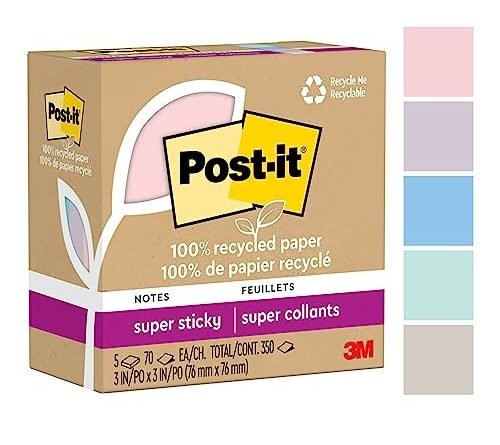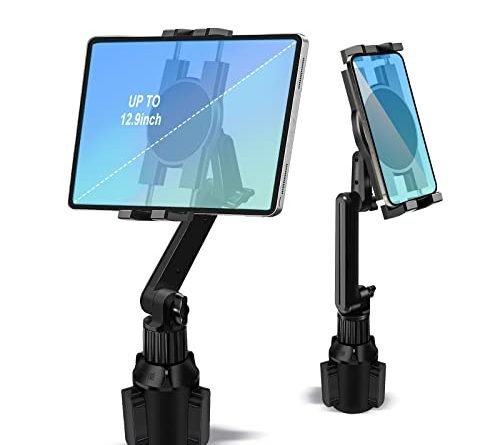
Have you ever felt like there just aren’t enough hours in the day to accomplish everything on your to-do list? If so, you’re not alone. Many people struggle with time management and often wonder which areas they can improve in order to become more productive and efficient. In this article, we will explore some common time management areas that you can focus on to elevate your productivity and make the most out of your day. So let’s dive in and discover how you can better manage your time!
Setting Goals
Setting goals is a crucial step in effective time management. By identifying your long-term objectives, you can create a roadmap for success. Consider what you want to achieve in the future, whether it’s personal or professional growth, financial stability, or healthier habits. These long-term objectives will serve as the foundation for designing your short-term goals.
Designing short-term goals is essential for making progress towards your long-term objectives. Break down your long-term goals into smaller, actionable tasks that you can focus on each day or week. For example, if your long-term objective is to start your own business, your short-term goals could include researching your target market, creating a business plan, and acquiring necessary skills or certifications.
Establishing priorities is crucial in managing your time effectively. Not all tasks are created equal, and it’s important to determine what requires immediate attention and what can be put aside. Prioritizing helps you make wise choices about where to allocate your time and energy. By considering urgency, importance, and impact, you can decide which tasks take precedence over others.
Creating SMART goals is a helpful framework for setting achievable and meaningful goals. SMART stands for Specific, Measurable, Attainable, Relevant, and Time-bound. By applying these principles to your goals, you ensure that they are specific and detailed, measurable so you can track progress, attainable within your capabilities, relevant to your long-term objectives, and time-bound with a clear deadline. This approach increases your chances of success and makes it easier to manage your time effectively.
Planning
Creating a daily schedule is a valuable tool for managing your time efficiently. By mapping out your day in advance, you have a clear understanding of what needs to be accomplished and when. Start by listing the tasks you need to complete, allocate specific time slots for each task, and be realistic about how long each task will take. Make sure to include breaks and downtime to avoid burnout and maintain focus throughout the day.
Using time blocks is an effective technique to structure your day. Time blocking involves assigning specific time slots for particular activities or categories of tasks. For example, you can allocate two hours in the morning for focused work, one hour for emails and communication in the afternoon, and another hour for personal development in the evening. By grouping similar tasks together, you can minimize context switching and optimize your productivity.
Allocating time for each task ensures that you have a realistic expectation of how long each task will take. This practice helps you avoid overcommitting yourself and allows for better planning. Be mindful of your energy levels throughout the day and allocate more time for tasks that require higher concentration or creativity. Remember, it’s better to allocate more time and finish early than to underestimate and feel rushed.
Utilizing productivity apps or tools can significantly enhance your planning efforts. There are various apps and tools available that can help you manage your tasks, schedule, and deadlines efficiently. From digital calendars and to-do list apps to project management software and time tracking tools, these resources can streamline your planning process and keep you on track. Explore different options and choose the ones that align with your needs and preferences.
Prioritization
Differentiating between urgent and important tasks is vital in effective time management. Urgent tasks require immediate attention and have imminent deadlines, while important tasks contribute significantly to your long-term goals and overall productivity. By distinguishing between the two, you can prioritize and tackle tasks effectively. Be cautious not to mistake urgency for importance and ensure that you focus on tasks that align with your objectives.
Ranking tasks based on importance allows you to allocate your time and resources appropriately. When prioritizing, consider the impact each task will have on your goals and overall productivity. Prioritize tasks that align with your long-term objectives and have a higher impact. By prioritizing effectively, you can avoid spending valuable time on low-priority tasks that do not contribute significantly to your goals.
Eliminating or delegating non-essential activities is crucial in managing your time efficiently. Sometimes, certain tasks or activities do not align with your goals or add value to your productivity. Be willing to let go of these non-essential tasks or delegate them to others. Delegation allows you to focus on important tasks and leverages the skills and capabilities of others. Remember, effective time management involves knowing when to say no or delegate.
Utilizing the Eisenhower Matrix, also known as the Urgent-Important Matrix, can help you prioritize tasks effectively. This matrix categorizes tasks into four quadrants: urgent and important, important but not urgent, urgent but not important, and not urgent or important. By analyzing tasks based on these criteria, you can allocate your time and attention accordingly. Focus on tasks that fall into the important and urgent quadrant, and aim to eliminate or minimize tasks in the not urgent or important quadrant.
Delegation
Identifying tasks suitable for delegation is an essential skill in effective time management. Not all tasks require your personal attention or expertise. Evaluate your tasks and determine which ones can be effectively delegated to others. Delegation allows you to leverage the skills and capabilities of others, freeing up your time to focus on higher-value activities.
Selecting competent individuals for delegated tasks is crucial in ensuring successful completion. Consider the skills, experience, and availability of potential candidates before delegating a task. Choose individuals who have the necessary expertise and can handle the responsibility. Effective delegation is about trusting others to deliver results and providing them with the opportunity to grow and contribute.
Providing clear instructions and expectations is vital when delegating tasks. Clearly communicate the objectives, requirements, and deadlines to ensure that the delegated task aligns with your expectations. Be available for clarification or guidance if needed, but avoid micromanaging. Effective delegation involves empowering others to take ownership and make decisions within the given parameters.
Assessing progress and providing feedback is essential for effective delegation. Regularly check in with the individuals you have delegated tasks to and provide constructive feedback. Celebrate successes and address any issues or challenges promptly. By monitoring progress, you can ensure that tasks are on track and make necessary adjustments if needed. Effective delegation requires ongoing communication and support.
Eliminating Distractions
Identifying common distractions is the first step in managing them effectively. Distractions can come in various forms, such as social media, email notifications, noisy environments, or personal interruptions. Reflect on the distractions that commonly disrupt your focus and productivity. Awareness allows you to take proactive measures to minimize their impact.
Creating a distraction-free environment is crucial in managing distractions effectively. Designate a specific workspace that is clean, organized, and conducive to focused work. Minimize visual and auditory distractions by removing clutter and noise. If possible, communicate to others when you need uninterrupted time to work or consider using noise-canceling headphones.
Using time management techniques such as the Pomodoro Technique can help you maintain focus and manage distractions. The Pomodoro Technique involves working in focused intervals, typically 25 minutes, followed by short breaks. By breaking your tasks into manageable chunks and setting a timer, you can maintain productivity and limit distractions. During the focused intervals, eliminate any potential distractions and give your full attention to the task at hand.
Implementing digital detoxes can significantly reduce distractions and increase productivity. Set specific periods throughout the day or week where you disconnect from digital devices and focus solely on important tasks or self-care activities. Turn off notifications on your phone or computer, and resist the temptation to check emails or social media. Allow yourself to fully engage in the present moment without the distractions of technology.

Efficient Task Execution
Breaking down large tasks into smaller subtasks is a key strategy in managing your time effectively. Large tasks can feel overwhelming and lead to procrastination. By breaking them down into smaller, more manageable subtasks, you can increase your motivation and momentum. Focus on completing one subtask at a time and celebrate small victories along the way.
Utilizing time management techniques such as the Two-Minute Rule can help you tackle tasks efficiently. The Two-Minute Rule states that if a task can be completed in less than two minutes, you should do it immediately. By following this rule, you prevent small tasks from piling up and becoming distractions or sources of stress. Embracing this rule allows you to maintain a sense of accomplishment and keep your to-do list manageable.
Using the 80/20 Rule, also known as the Pareto Principle, can help you prioritize your tasks effectively. The 80/20 Rule suggests that approximately 80% of the results come from 20% of your efforts. Identify the tasks that contribute the most to your goals and focus on them first. By concentrating your efforts on high-impact tasks, you can maximize your productivity and achieve significant results.
Avoiding multitasking and focusing on one task at a time is a proven strategy for efficient task execution. Multitasking can lead to decreased productivity, increased errors, and a higher likelihood of distractions. Instead, focus on one task at a time, complete it to the best of your ability, and then move on to the next task. By giving your full attention to each task, you can maintain a higher level of focus and produce better quality work.
Procrastination Management
Identifying procrastination triggers is crucial in overcoming this common challenge. Procrastination can be caused by various factors such as fear of failure, perfectionism, lack of motivation, or feeling overwhelmed. Reflect on the underlying reasons that lead to procrastination in your life. Awareness allows you to develop effective strategies to overcome this habit.
Implementing strategies to overcome procrastination is essential for managing your time effectively. Start by breaking down tasks into smaller, manageable steps to reduce feelings of overwhelm. Set realistic deadlines and create accountability systems, such as sharing your goals with a trusted friend or colleague. Establish a routine that includes dedicated time for focused work and consistently follow it. Lastly, be mindful of your mindset and practice positive self-talk to stay motivated and overcome procrastination.
Creating accountability systems can significantly improve your ability to meet deadlines and overcome procrastination. Share your goals and deadlines with someone who can hold you accountable, such as a friend, colleague, or mentor. Regularly check in with them to share your progress and discuss any challenges. Having someone who supports and encourages your efforts can increase your motivation and commitment.
Rewarding yourself for meeting deadlines is a powerful motivator. When you successfully complete a task or reach a milestone, celebrate your achievement. Rewarding yourself can be as simple as taking a break, treating yourself to a favorite activity, or indulging in a small pleasure. Acknowledging your efforts and progress reinforces positive behavior and encourages you to continue managing your time effectively.
Stress and Time Management
Recognizing the relationship between stress and time management is essential for maintaining your well-being. Poor time management can lead to increased stress levels, while effective time management can reduce stress and enhance productivity. By understanding this correlation, you can prioritize time management as a means to create a more balanced and fulfilled life.
Identifying stressors and their impact on productivity is crucial in managing your time effectively. Reflect on the factors that contribute to your stress levels, such as tight deadlines, overwhelming workloads, or personal commitments. By recognizing these stressors, you can take proactive measures to address them and create a healthier and more productive environment.
Implementing stress-reducing techniques such as meditation or exercise can significantly improve both your time management and overall well-being. Regularly practicing mindfulness meditation can help you manage stress, improve focus, and enhance self-awareness. Engaging in physical exercise releases endorphins, reduces stress hormones, and improves cognitive function. By incorporating these techniques into your routine, you can create a more balanced and productive lifestyle.
Utilizing time management to create a balanced schedule is essential for managing stress effectively. By allocating time for work, rest, self-care, and leisure activities, you create a sense of balance in your life. Remember to prioritize self-care and downtime to recharge and prevent burnout. Finding the right balance may require experimentation and adjustments, but it is worth the effort for improved stress management.
Communication and Time Management
Improving active listening skills is crucial for effective time management. When engaging in communication, whether in meetings, conversations, or written exchanges, practice active listening. Give your full attention to the speaker, ask clarifying questions, and summarize what you have understood. Active listening reduces misunderstandings, promotes effective collaboration, and saves time by preventing miscommunication.
Enhancing verbal and non-verbal communication skills is vital for effective time management. Clear and concise verbal communication helps ensure that messages are understood correctly and that tasks or expectations are communicated effectively. Additionally, non-verbal communication, such as body language and facial expressions, can convey important information and enhance understanding. By honing these skills, you can streamline communication and avoid unnecessary time spent clarifying or correcting misunderstandings.
Setting boundaries and managing interruptions is crucial in managing your time effectively. Communicate your availability and preferred methods of communication to others, setting clear boundaries around when you can be interrupted and when you need uninterrupted time for focused work. Establish strategies to deal with interruptions, such as issuing “Do Not Disturb” signals or redirecting inquiries to specific timeframes. By managing interruptions effectively, you can maintain productivity and accomplish your tasks more efficiently.
Utilizing effective communication tools can significantly enhance your time management efforts. Communication platforms and tools, such as project management software, collaboration tools, or instant messaging apps, can streamline communication, facilitate collaboration, and provide a centralized platform for task management. Explore different tools and choose the ones that align with your needs and the needs of your team or organization.
Personal Development and Time Management
Identifying areas for personal growth is important for maximizing your time management skills. Reflect on your strengths and weaknesses, and consider areas where you can improve. This may include developing new skills, enhancing existing skills, or acquiring knowledge in specific areas. By investing time in your personal development, you can enhance your effectiveness and efficiency in managing tasks and time.
Allocating time for self-reflection and self-care is essential for sustainable time management. Regularly take time to assess your progress, identify areas for improvement, and celebrate your achievements. Additionally, prioritize self-care activities that support your well-being, such as exercise, hobbies, or spending time with loved ones. By nourishing yourself physically and emotionally, you can maintain a positive mindset and sustain your energy levels.
Continuously learning and updating skills is crucial for adapting to changing circumstances and maximizing your time management abilities. Stay curious and seek opportunities for growth and learning. Attend workshops, seminars, or webinars related to your field or areas of interest. Read books or listen to podcasts that expand your knowledge. By staying current and continuously improving, you can leverage new strategies and tools to enhance your time management.
Identifying and addressing time-wasting habits is essential for effective time management. Reflect on your daily routines and habits, and identify any behaviors that consistently waste your time. It could be excessive social media usage, procrastination, or excessive multitasking. Once identified, take proactive steps to address and minimize these habits. This may involve setting specific boundaries, breaking them into smaller tasks, or utilizing time management techniques. By replacing time-wasting habits with productive ones, you can optimize your time management skills.
In conclusion, effective time management is a vital skill that can significantly enhance productivity, reduce stress, and improve overall well-being. By setting clear goals, planning your tasks, prioritizing effectively, delegating when necessary, eliminating distractions, executing tasks efficiently, managing procrastination, recognizing the relationship between stress and time management, communicating effectively, investing in personal development, and addressing time-wasting habits, you can become a master of your time. Remember, managing time is about making intentional choices, setting boundaries, and aligning your actions with your goals and values. With practice and dedication, you can transform your time management skills and enjoy a more fulfilling and balanced life.






